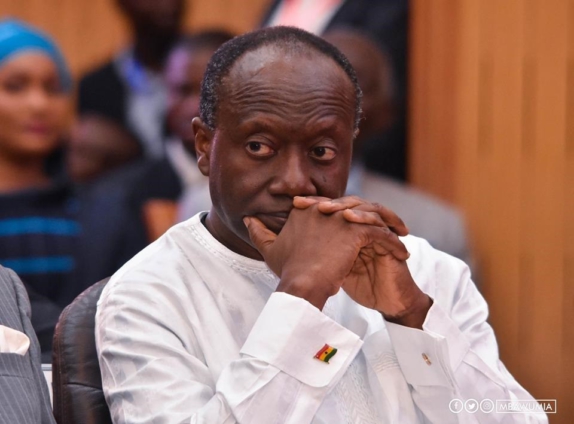The Government has questioned the international credit rating agency, Moody's recent downgrade of Ghana from B3 to Caa1 with a stable outlook on the Long-Term Issuer and Senior unsecured bond ratings.
In an official statement, government explained that the forecast and projections had inaccurate balance of payments statistics, lack of supporting quantitative analysis, or data on Environmental, Social, and governance credentials.
It also complained about the "omission" of key material information such as the 2022 Budget expenditure control measures - 2022 upfront fiscal adjustments.
The Ministry of Finance, in a media statement, also protested the appointment of a new primary credit analyst for Ghana, only four weeks to the release of credit ratings.
Government also had issues with, "the Committee’s refusal to consider deferring such a monumental rating action until the analyst had enough time to more fully understand both the quantitative and qualitative aspects of the Ghana credit story."
The Ministry noted that issues identified to warrant a downgrade had been addressed by the Government with the announcement of fiscal consolidation measures, which were anchored on debt sustainability and a positive primary balance.
Moody's in its decision to downgrade Ghana mentioned the "increasingly difficult task government faces in addressing the intertwined liquidity and debt challenges, pandemic induced revenue underperformance, tight funding conditions on international markets, materially decreasing governance and institutional strength and inflexibilities in the government budget.”
The rating agency in giving Ghana a stable outlook, however, highlighted attractive prospects over the medium term, which it said was based on balancing challenges, against the government’s pre-pandemic track record of relatively effective policy delivery and maintenance of a variety of funding sources."
The Ministry explained, "we are at odds to understand Moody’s assertion of the deterioration of Ghana’s institutional strength given Ghana’s reputation as a beacon of democracy in Africa."
It, therefore, called for reforms in the conduct of rating agencies given their ownership structure and the ramifications that their actions have on countries, especially in Africa.
"Unfortunately, it is also worthy to note that on a regional basis, there is ample evidence that Sovereigns on the African continent, in particular, have suffered more adverse rating actions than any other continent since the pandemic, despite the fact that the impact of Covid has been relatively manageable in Africa", the statement read.
Latest Stories
-
Nigerian-born conquers childhood hearing loss to become KNUST’s overall best graduating student
22 mins -
ECOWAS Court orders compensation for violations against New Force’s Shalimar Abbiusi
34 mins -
Dreams FC denies allegations of attempting to sign Najeeb Yakubu
2 hours -
Election 2024: ‘Right to free and fair elections non-negotiable’ – Akufo-Addo
2 hours -
Kurt Okraku took out my passport from the U23 squad that travelled to Japan – Najeeb Yakubu alleges
2 hours -
Where hope fails: Ghana’s decaying home for the destitute
2 hours -
NDC Mining Committee for 2024 campaign refutes allegations of recruiting thugs for elections
2 hours -
Traction Control: A lifesaver with an off switch? Here’s why it exists
2 hours -
I don’t need anyman to woo me with money – Miss Malaika 2024 winner refutes pimping claims
2 hours -
”Kurt Okraku sabotaged my national team career because I refused to sign with Dreams FC” – Najeeb Yakubu
2 hours -
Businesses urged to leverage Generative AI for enhanced customer engagement
2 hours -
MultiChoice Ghana partners with Ghana Hotels Association to elevate guest entertainment
3 hours -
Bawumia’s music streaming app or Mahama’s pay-per-view TV channel?
3 hours -
Karpowership Ghana empowers 40 Takoradi Technical University students with scholarship
3 hours -
We expect significant reduction in prices of petroleum products in coming weeks – CEO AOMC
3 hours

